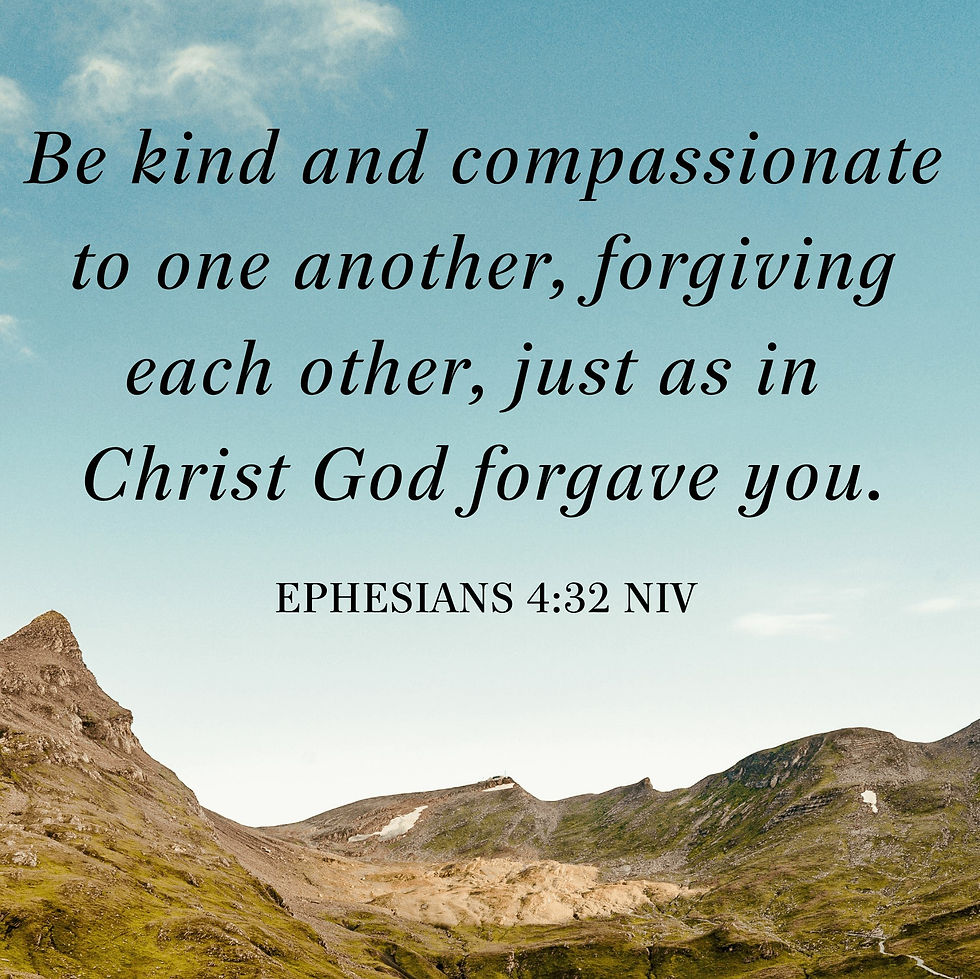Lenten Meditation: Forgiveness is One Way We Show We Belong to One Another
- Christ Episcopal Church

- Apr 12, 2022
- 2 min read

One of the most significant, powerful moments in my work as a criminal defense attorney came on a day when my client and I lost our motion for a modification of his sentence. But it was a moment that brought joy and hope rather than the disappointment and frustration we expected.
It was a drunk driving and manslaughter case that had resulted in the death of a young mother. The young man charged and convicted of her death had tried to enter a guilty plea but the judge refused to accept the agreement between the state and defense and offered a much higher sentence with a promise to consider a modification later without any guarantees it would be granted.
I did not represent this young man at the time of his plea, but I believe his healing and growth as a man began at the moment that he decided to accept the higher sentence this judge offered.
After some time in the Division of Corrections, this young man’s case manager at the prison submitted his name for consideration for participation in a new program they offered through a grant where certain inmates could get one-on-one psychotherapy weekly for a year to deal with untreated traumas they had experienced before entering the prison. I do not recall the details of this client’s traumas, nor do I feel it appropriate to share here but I do recall he suffered severe loss and trauma at a young age that contributed to his use of drugs and/or alcohol. I also recall that he was severely suicidal after surviving the car accident that caused the death of the young mother. I have never heard on any other clients before or since getting psychotherapy while in prison but believe it’s a key to stopping the trend of high rates of recidivism to lives of crime/drug use after prison. Of course, naturally, it’s better to find ways to identify those victims of trauma and get them psychotherapy before any criminal activity occurs.
At the hearing for a possible modification of this man’s sentence, we heard from the mother of the woman who was killed. She was raising her granddaughter and was still recovering from the loss of her daughter at the hands of my client. But she had worked through her own therapy sessions and with the help of her pastor had come to forgive the man who killed her daughter and wanted only the best for him in his future. She came to the hearing to say that to the judge and to the man who killed her daughter. Once that was said, no one could talk for several minutes, and it didn’t matter that the judge failed to modify the sentence in any way. We felt the power of forgiveness and faith in that courtroom that day.





